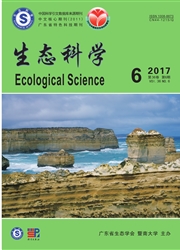

 中文摘要:
中文摘要:
近海海域重金属镉污染已成为全球性的环境灾难。镉对有机体的氧化应激胁迫是引发有机体毒害效应的关键原因。海洋微藻是海域生态系统中初级生产者,研究其抵抗镉氧化应激毒害的过程和机理对海洋生态学具有重要科学意义。海洋微藻在长期进化发展过程中,形成了耐受重金属镉毒害的生长适应性反应,抵抗镉氧化应激胁迫是海洋微藻减轻或消除镉毒害的关键所在。文章概述当前近海重金属镉的污染现状,归纳重金属镉对海洋微藻的氧化应激毒害效应,提出海洋微藻对镉胁迫的抗氧化应激适应性,简介几种典型的抗氧化应激酶类与非酶类物质,最后指出该领域的关键问题并进行展望。
 英文摘要:
英文摘要:
Heavy metal cadmium(Cd) contamination along the coastal waters has become one of the most severe global environmental hazards.Cd may elicit oxidative stress,which results in consequent toxic effects in the organisms.Marine microalgae are the first primary producers in the marine ecosystem;how these aquatic organisms response to the Cd stress is a matter of ecosystem stability.During the long evolutional process of marine microalgae,they have formed some strategies to resist to Cd stress,among which the anti-oxidative stress response in marine microalgae is the key one in relieving or eliminating Cd toxicity.In this paper,Cd contamination in offshore environment is introduced,and the oxidative stress activated by Cd in marine microalgae is summarized.In addition,the anti-oxidative adaptation to Cd stress is reviewed.Several typical anti-oxidative enzymes and non-enzyme substances involved in the adaptation to Cd stress are also presented.Finally,the perspective on this research field is put forward.
 同期刊论文项目
同期刊论文项目
 同项目期刊论文
同项目期刊论文
 Humic analog AQDS and AQS as an electron mediator can enhance chromate reduction by Bacillus sp stra
Humic analog AQDS and AQS as an electron mediator can enhance chromate reduction by Bacillus sp stra Compensatory growth of the bloom-forming dinoflagellate Prorocentrum donghaiense induced by nitrogen
Compensatory growth of the bloom-forming dinoflagellate Prorocentrum donghaiense induced by nitrogen Spatial and Seasonal Variations of Total Petroleum Hydrocarbonin Surface Water and Sediment in Pearl
Spatial and Seasonal Variations of Total Petroleum Hydrocarbonin Surface Water and Sediment in Pearl Promotion effects of nitrogen on the cell proliferation of Platymonas subcordiformis evaluated by sp
Promotion effects of nitrogen on the cell proliferation of Platymonas subcordiformis evaluated by sp Ecotoxicity of two organophosphate pesticides chlorpyrifos and dichlorvos on non-targeting cyanobact
Ecotoxicity of two organophosphate pesticides chlorpyrifos and dichlorvos on non-targeting cyanobact Ability of the marine diatoms Pseudo-nitzschia multiseries and P. pungens to inhibit the growth of c
Ability of the marine diatoms Pseudo-nitzschia multiseries and P. pungens to inhibit the growth of c Spatial–temporal distribution and potential ecological risk assessment of nonylphenol and octylpheno
Spatial–temporal distribution and potential ecological risk assessment of nonylphenol and octylpheno Spatial-temporal distribution of phthalate esters from riverine outlets of Pearl River Delta in Chin
Spatial-temporal distribution of phthalate esters from riverine outlets of Pearl River Delta in Chin Determination of enrofloxacin and ciprofloxacin in foods of animal origin by capillary electrophores
Determination of enrofloxacin and ciprofloxacin in foods of animal origin by capillary electrophores Distribution and Risk Assessment of Heavy Metals inSediments of the Pearl River Estuary, Southern Ch
Distribution and Risk Assessment of Heavy Metals inSediments of the Pearl River Estuary, Southern Ch Occurrence of phthalate esters in surface water and sediments from the Pearl River Delta, Southern C
Occurrence of phthalate esters in surface water and sediments from the Pearl River Delta, Southern C Inhibitory effects of Chinese traditional herbs and herb-modified clays on the growth of harmful alg
Inhibitory effects of Chinese traditional herbs and herb-modified clays on the growth of harmful alg Effect of Vitamin-B1 and Vitamin-B12 on the Growth and Carotenoid Content of Haematococcus pluvialis
Effect of Vitamin-B1 and Vitamin-B12 on the Growth and Carotenoid Content of Haematococcus pluvialis Toxic Effect of a Marine Bacterium onAquatic Organisms and Its AlgicidalSubstances against Phaeocyst
Toxic Effect of a Marine Bacterium onAquatic Organisms and Its AlgicidalSubstances against Phaeocyst Burkholderia dabaoshanensis sp. nov., a heavy-metal-tolerant bacteria isolated from Dabaoshan mining
Burkholderia dabaoshanensis sp. nov., a heavy-metal-tolerant bacteria isolated from Dabaoshan mining Growth effects on mixed culture of Dunaliella salina and Phaeodactylum tricornutum under different i
Growth effects on mixed culture of Dunaliella salina and Phaeodactylum tricornutum under different i Allelopathic interactions between the red-tide causative dinoflagellate Prorocentrum donghaiense and
Allelopathic interactions between the red-tide causative dinoflagellate Prorocentrum donghaiense and 期刊信息
期刊信息
